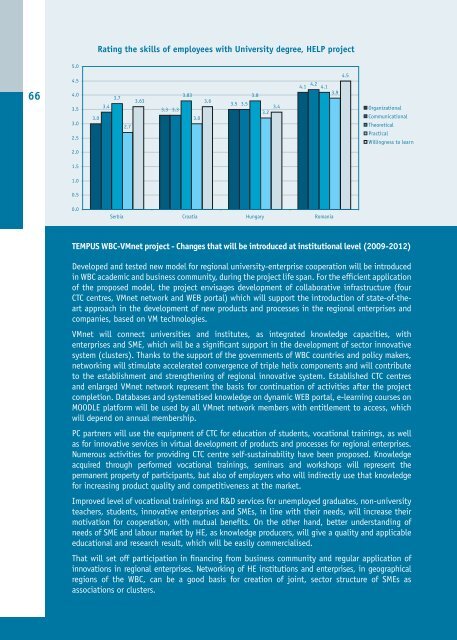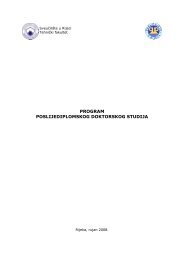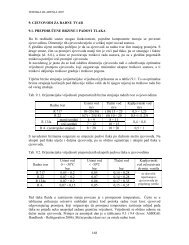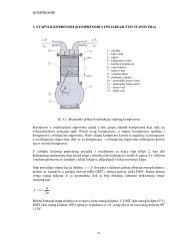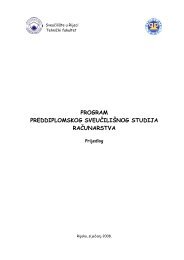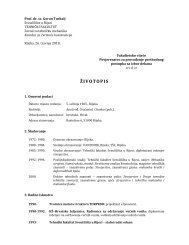universityâenterprise cooperation
universityâenterprise cooperation
universityâenterprise cooperation
You also want an ePaper? Increase the reach of your titles
YUMPU automatically turns print PDFs into web optimized ePapers that Google loves.
Rating the skills of employees with University degree, HELP project<br />
5.0<br />
66<br />
4.5<br />
4.0<br />
3.5<br />
3.0<br />
2.5<br />
3.0<br />
3.4<br />
3.7<br />
2.7<br />
3.83 3.8<br />
3.63 3.6<br />
3.5 3.5<br />
3.3 3.3<br />
3.0<br />
3.2<br />
3.4<br />
4.1<br />
4.2<br />
4.1<br />
3.9<br />
4.5<br />
Organizational<br />
Communicational<br />
Theoretical<br />
Practical<br />
Willingness to learn<br />
2.0<br />
1.5<br />
1.0<br />
0.5<br />
0.0<br />
Serbia Croatia Hungary Romania<br />
TEMPUS WBC-VMnet project - Changes that will be introduced at institutional level (2009-2012)<br />
Developed and tested new model for regional university-enterprise <strong>cooperation</strong> will be introduced<br />
in WBC academic and business community, during the project life span. For the efficient application<br />
of the proposed model, the project envisages development of collaborative infrastructure (four<br />
CTC centres, VMnet network and WEB portal) which will support the introduction of state-of-theart<br />
approach in the development of new products and processes in the regional enterprises and<br />
companies, based on VM technologies.<br />
VMnet will connect universities and institutes, as integrated knowledge capacities, with<br />
enterprises and SME, which will be a significant support in the development of sector innovative<br />
system (clusters). Thanks to the support of the governments of WBC countries and policy makers,<br />
networking will stimulate accelerated convergence of triple helix components and will contribute<br />
to the establishment and strengthening of regional innovative system. Established CTC centres<br />
and enlarged VMnet network represent the basis for continuation of activities after the project<br />
completion. Databases and systematised knowledge on dynamic WEB portal, e-learning courses on<br />
MOODLE platform will be used by all VMnet network members with entitlement to access, which<br />
will depend on annual membership.<br />
PC partners will use the equipment of CTC for education of students, vocational trainings, as well<br />
as for innovative services in virtual development of products and processes for regional enterprises.<br />
Numerous activities for providing CTC centre self-sustainability have been proposed. Knowledge<br />
acquired through performed vocational trainings, seminars and workshops will represent the<br />
permanent property of participants, but also of employers who will indirectly use that knowledge<br />
for increasing product quality and competitiveness at the market.<br />
Improved level of vocational trainings and R&D services for unemployed graduates, non-university<br />
teachers, students, innovative enterprises and SMEs, in line with their needs, will increase their<br />
motivation for <strong>cooperation</strong>, with mutual benefits. On the other hand, better understanding of<br />
needs of SME and labour market by HE, as knowledge producers, will give a quality and applicable<br />
educational and research result, which will be easily commercialised.<br />
That will set off participation in financing from business community and regular application of<br />
innovations in regional enterprises. Networking of HE institutions and enterprises, in geographical<br />
regions of the WBC, can be a good basis for creation of joint, sector structure of SMEs as<br />
associations or clusters.


